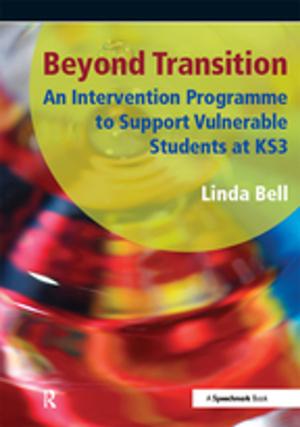School Refusal: Children Who Can't or Won't Go to School
Nonfiction, Reference & Language, Education & Teaching, Counseling & Guidance| Author: | George Haarman | ISBN: | 9781301310753 |
| Publisher: | George Haarman | Publication: | February 14, 2013 |
| Imprint: | Smashwords Edition | Language: | English |
| Author: | George Haarman |
| ISBN: | 9781301310753 |
| Publisher: | George Haarman |
| Publication: | February 14, 2013 |
| Imprint: | Smashwords Edition |
| Language: | English |
“Every morning it is the same story. Tyree refuses to get out of bed, starts complaining about not feeling well, finds every excuse not to get ready for school, and insists on staying home with me. During the entire ride to school, he complains about his teacher, his classmates, and his school. As soon as we turn into the school parking lot, he breaks out into tears, announces that he is going to be sick, and about 90 percent of the time actually starts to throw up. We turn the car around and go home and he instantly becomes the happy, loving little boy that I know. I don’t know what to do.”
School refusal is a problem which is stressful for children, for their families, and for school personnel. Failing to attend school has significant long-term and short-term effects on children’s social, emotional, and educational development. School refusal is often the result of, or associated with, comorbid disorders such as anxiety or depression. Careful assessment, treatment planning, interventions, and management of school refusal are critical to a successful return to school as quickly as possible.
Interventions may include educational support, cognitive therapy, behavior modification, parent/teacher interventions, and pharmacotherapy.
The book breaks down the distinction between truancy and school refusal, allows for a functional analysis of school refusal to determine the motivation and particular reinforcement systems which support the behavior. The latest intervention strategies are reviewed with a focus on tailoring and adapting standard approaches to specific situations. Case studies and sample intervention plans for cases of school refusal allow you to implement these strategies immediately.
“Every morning it is the same story. Tyree refuses to get out of bed, starts complaining about not feeling well, finds every excuse not to get ready for school, and insists on staying home with me. During the entire ride to school, he complains about his teacher, his classmates, and his school. As soon as we turn into the school parking lot, he breaks out into tears, announces that he is going to be sick, and about 90 percent of the time actually starts to throw up. We turn the car around and go home and he instantly becomes the happy, loving little boy that I know. I don’t know what to do.”
School refusal is a problem which is stressful for children, for their families, and for school personnel. Failing to attend school has significant long-term and short-term effects on children’s social, emotional, and educational development. School refusal is often the result of, or associated with, comorbid disorders such as anxiety or depression. Careful assessment, treatment planning, interventions, and management of school refusal are critical to a successful return to school as quickly as possible.
Interventions may include educational support, cognitive therapy, behavior modification, parent/teacher interventions, and pharmacotherapy.
The book breaks down the distinction between truancy and school refusal, allows for a functional analysis of school refusal to determine the motivation and particular reinforcement systems which support the behavior. The latest intervention strategies are reviewed with a focus on tailoring and adapting standard approaches to specific situations. Case studies and sample intervention plans for cases of school refusal allow you to implement these strategies immediately.















